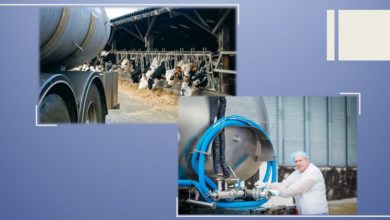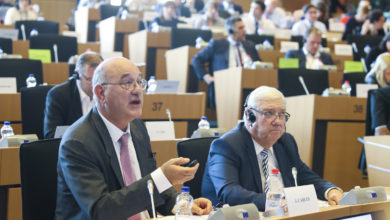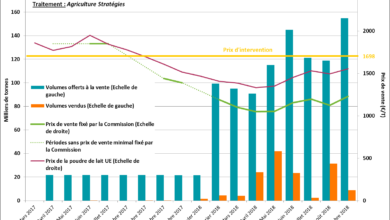
Debates within the European Union on agricultural policies are less and less solely about the Common Agricultural Policy and increasingly about agricultural land policies. The multiplication of reports from the European Parliament on the subject these last few years are proof of that trend1. Decrease of the number of farmers, aging of the overall farming population, concentration sometimes excessive of farms indeed seem to be common preoccupations tp the majority of European rural areas.
These stakes nonetheless take a sharper tone in member states who have joined since the 2000s. A series of disputes between the Union and several countries (Bulgaria, Hungary, Lituania, Latvia and Slovakia) have emerged after the implementation of restrictions to the access to land property which are considered non euro-compatible. Clarifying the latitudes of manoeuver of legislators to make the agricultural land ownership rules evolve while staying compliant with European treaties is all the more crucial for countries who, with the collectivization of land and then the decollectivization, have known a major disruption in the progressive consolidation of ownership rules adapted to agriculture. It is also an important subject for western European countries where agricultural land policies knew different evolutions and are also questioned by investment ways that, even if they differ for a good part, can come into sense with the theme of “land grabbing” seen especially in developing countries.
In order to operate this classification, and through the European Parliament’s demand, the Commission just published a communication on the acquisition of agricultural land and the European Union law2, which we summarized here.
In first place, the Commission makes the point that if European Treaties shall not prejudice member states’ rules governing the system of ownership3, this disposition can’t stop “the fundamental freedoms or other basic Treaty principles from applying”. In particular, the free movement of capital, freedom of establishment and legal certainty cannot be impeded without being justified by superior public interest, via measures that are non-discriminatory, adapted and proportionate to the seeked objective.
Legitimate objectives of agricultural policies
On the basis of the Court of Justice of the European Union’s jurisprudence (CJEU) in which is said it recognizes “the specific nature of agricultural land”, this communication lists the “agricultural policy objectives that may justify restrictions on fundamental freedoms”. This includes the entirety of usually found objectives for structural policy objectives: consolidating farms, preventing land speculation, maintaining a rural population, favoring the traditional owner-occupancy use of agricultural land. To this list can be added two objectives non-specific to agriculture, namely protecting a permanent population and an autonomous economic activity from the tourism industry and preserving military spaces.
By going through the different types of land market restrictions and by indicating in what way each of them can, or cannot, be considered acceptable, the Commission is shaping the outline of an ideal euro-compatible land policy.
Banned restrictions
Among the banned restrictions, we find those relating to the buyer’s nationality, his domiciliation or his knowledge of the local language. We can however note that there is a distinction between Europeans and third countries’ nationals, the restrictions against the latter being considered as potentially acceptable.
Restricting the access to legal entities is also deemed contrary, in particular, to the freedom of establishment. However the communication highlights the recent legal evolutions that aim at increasing transparency on true owners of companies and trusts4.
Moreover, the criteria relating to the buyer’s activities appear disproportionate: the rules cannot restrain land buying to farmers only, nor can they force the buyer to farm the land he just bought himself.
Acceptable restrictions
On the other hand, the Commission puts forth the advantages of a preemption right which gives priority to picked out potential buyers, rather than an forbidding and excluding logic depending on people’s attributes. Therefore, preliminary authorization systems by the administration are considered valid because they allow to assert these rights and as long as they are based on objective, non-discriminatory and determined in advance criteria. The legal certainty is much better that way because a preliminary authorization procedure avoids having to use transaction cancellations afterwards.
Moreover, two other types of controls can be justified: the control on prices and acquisition caps. In the first instance, a restriction of price liberty can be justified if their levels are unreasonable, speculative or if they endanger the farms profitability. In the instance of agricultural land privatization, the report explains that the method of selling price determination must be sufficiently robust for the agreed discount not to be considered State aid.
Finally the communication specifies that the capping of the size of the land property bought or owned, even if it is a restriction on the free circulation of capital, can be a suitable measure to “prevent excessive land ownership concentration to support family farming and the development of medium-sized farms”.
Frédéric Couleux, Director of studies of Agriculture Strategies
1 See in particular, European Parliament, « Report on the state of play of farmland concentration in the EU: how to facilitate the access to land for farmers?”, 2016/2141 (INI), or European Parliament, Directorate-general for internal policies, Extent of Farmland Grabbing in the EU, study, 2015
2 http://eur-lex.europa.eu/legal-content/FR/TXT/PDF/?uri=CELEX:52017XC1018(01)&from=EN
3 Cf . Article 345 of the TFEU
4 A reference is made to the 2015/849 directive about the prevention of the use of financial systems with the intent of laundering capital or financing terrorism.












